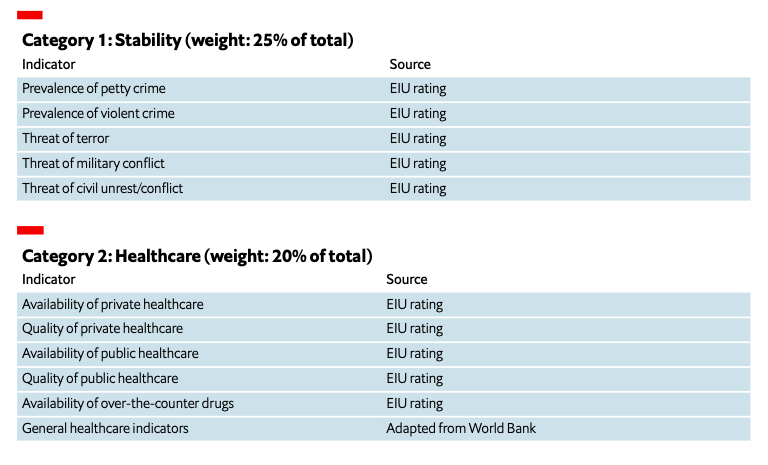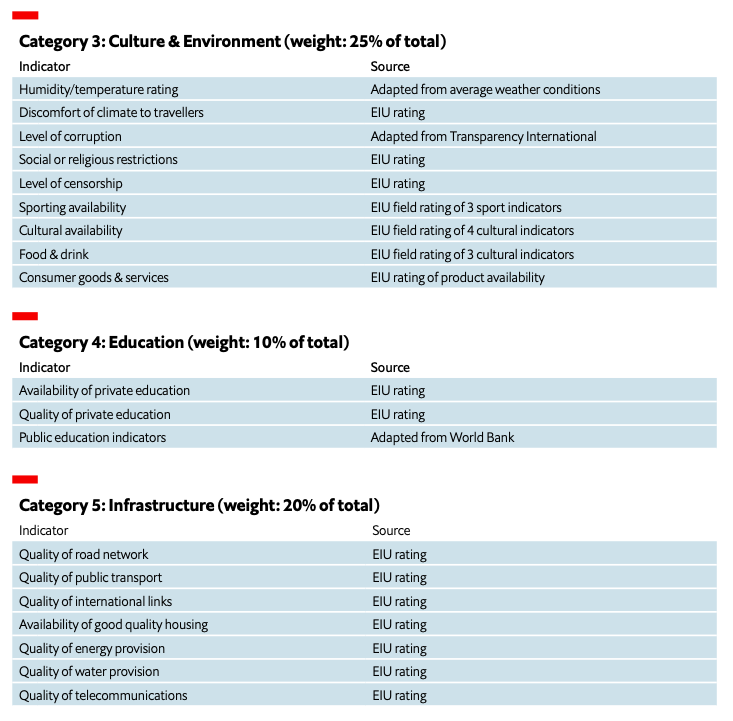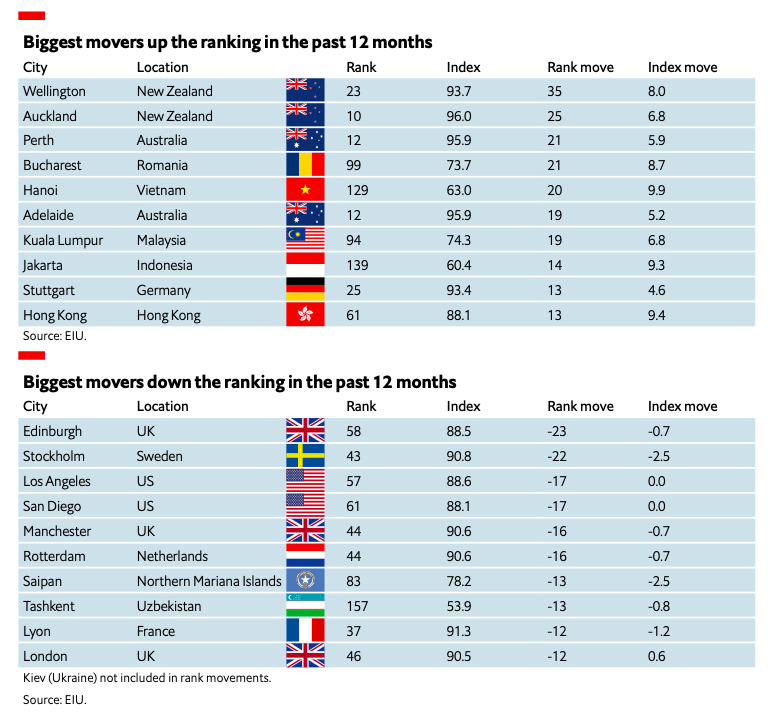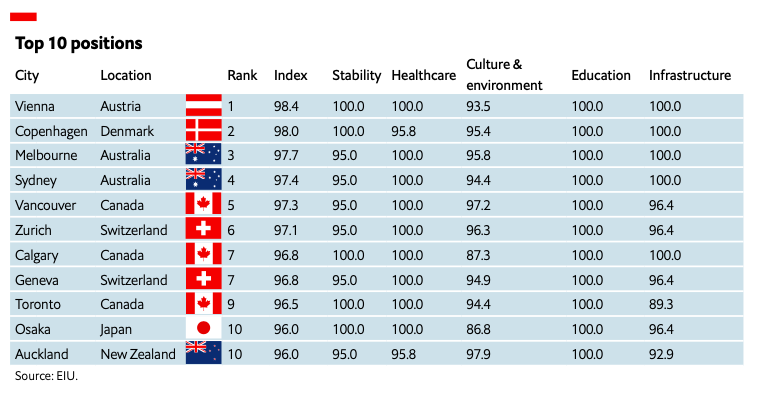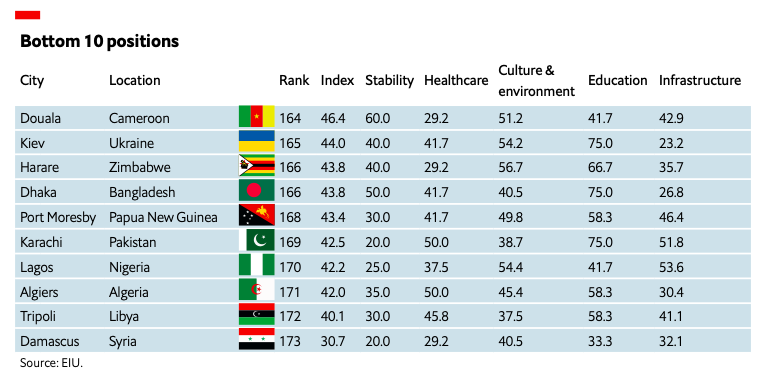Study: Kuala Lumpur Ranks As The 94th Most Liveable City In The World
According to the study, Asia-Pacific cities saw the biggest climb on the list when compared to the same index for 2022.
As one of the world's leading advisory and research corporations, Economist Intelligence Unit (EIU), just released their findings on the most liveable cities in the world
Referred to formally as The Globally Liveability Index 2023, EIU, as an organisation, offers deep insight and analysis of the economic and political developments in the increasingly complex global environment through identifying opportunities, trends, and risks on a national scale.
In assessing the concept of liveability, the study ranked 173 cities based on which locations provide the best or worst living conditions. For this study, every city was assigned a rating of relative comfort for over 30 qualitative and quantitative factors across five categories.
These five categories were:
1. Stability
2. Healthcare
3. Culture and environment
4. Education
5. Infrastructure
However, EIU also stated that the COVID-19 pandemic has affected living conditions in many cities across the globe, impacting each place's overall liveability score. These scores were weighted between one and 100, where one is considered intolerable and 100 is considered ideal.
For each of the five categories, the liveability score reached is equally divided into relevant subcategories to ensure that the final index covered as many indicators as possible
For the qualitative variables, a designated "EIU rating" was awarded based on the judgement of an in-house expert country analyst and a field correspondent based in each city.
On the other hand, quantitative variables were calculated based on the relative performance of a location using external data sources.
Here's a breakdown of each category within their own indicators or subcategories:
According to the report, Kuala Lumpur ranked as the 94th most liveable city in the world for 2023, rising 19 spots based on its ranking for the same index in 2022
Listed in the category of "Biggest movers up in the ranking in the past 12 months", Kuala Lumpur was the seventh biggest mover up with an index rating of 74.3 out of 100 points.
Detailed in the study, EIU also found that cities within the Asia-Pacific region recorded the most gains in position over the past year. Eight out of the top 10 “biggest movers up” were from the Asia-Pacific region, with their climb being largely accredited to the doing away of COVID-19 restrictions in each respective city.
"In all, eight of the top 10 climbers in our rankings are from the Asia-Pacific region, with cities such as Hanoi (Vietnam) and Kuala Lumpur (Malaysia) also bouncing upwards," read the study.
On the opposite end, European cities dominated the list of top 10 fallers in the ranking, with Edinburgh moving down 23 positions to 58th place, while Stockholm fell by 22 positions to 43rd. In describing their decline, EIU stated that while these cities did not see a sharp decline in their score, they failed to make gains other cities made in the past year, particularly those in Asia.
Vienna, Austria maintained its position as the most liveable city in the world, ranking first with an overall index score of 98.4
Rounding off the top five most liveable cities in the world included Copenhagen, Denmark at second place with a score of 98.0, Melbourne and Sydney in Australia at third and fourth with an index score of 97.7 and 97.4 respectively, and Vancouver, Canada at fifth, with a score of 97.3.
An ongoing shift towards normality post COVID-19, as well as incremental improvements towards liveability, were stated to be some of the biggest drivers of change in the index's ranking.
The bottom five liveable cities in the world in descending order was Karachi in Pakistan with a score of 42.5, Lagos in Nigeria with a score of 42.2, Algiers in Algeria with a score of 42.0, and Tripoli in Libya with a score of 40.1. The least liveable city in the world was said to be Damascus in Syria, which landed at 173rd with a score of 30.7.
Despite this, the study also noted that cities such as Lagos and Algiers have gained ground with improvement in healthcare and education, though issues surrounding corruption continue to be the biggest challenge for the cities. The study also remarked that Damascus has unfortunately seen no improvement in its liveability score over the past year.
All in all, EIU recorded that each of the five main categories saw improvements from 2022 with the exception of stability, whose decline may see liveability be at risk in the future
Relating the decline in stability to many factors caused by various issues unique to each city, such as civil unrest, inflation, dissatisfaction with working conditions, and bankruptcies, among others, the stability scores for EIU's Liveability Index may not recover quickly, as stated in the report.
Nonetheless, the study also revealed that while some issues may plague the scores for certain nations, the 2023 EIU's Liveability Index has risen significantly, reaching a 15-year high as the world continues to strive forward from the COVID-19 pandemic.
Click here to read EIU's full Liveability Index report for 2023.
Meanwhile, Kuala Lumpur was said to be the third most overworked city in the whole world last August:

